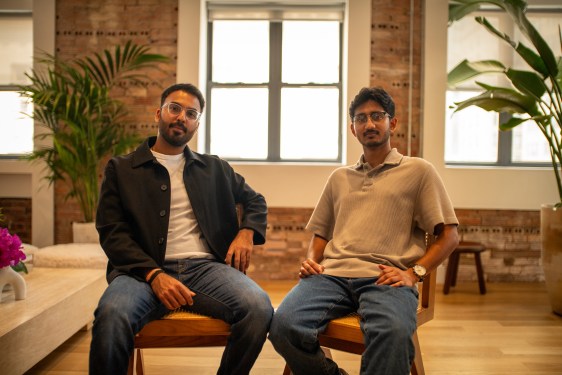One day, Shashwat Murarka sat in his college apartment thinking about his relationship with food delivery. He experienced common frustrations, such as orders that never arrived, forcing him to wander through his apartment searching for misplaced food. On other occasions, he found himself giving step-by-step directions to confused delivery drivers, a situation that seemed to annoy everyone involved.
What began as personal frustration evolved into a mission to solve a frequently overlooked problem in the supply chain: the final stretch of the last mile. He shared this with TechCrunch. Murarka began studying the delivery supply chain, even running deliveries himself. During his senior year of college, he decided to fully commit to solving this problem.
He teamed up with his friend Sheel Patel and launched Doorstep, a company focused on improving delivery tracking. Murarka, the CEO, explained that while standard GPS is excellent outdoors, it fails inside buildings, creating a significant blind spot for delivery personnel.
Doorstep integrates into existing delivery apps. Using phone sensors, it tracks when a driver has entered a building, taken an elevator, and reached the correct doorstep. This data is provided to the delivery platform, such as Uber Eats or DoorDash. It can then be used to automate dispute resolution and properly validate deliveries, effectively ending the issues of missing food and unclear proof-of-delivery photos.
Murarka emphasized that the company does not collect driver or user information and maintains the same privacy and security standards already used by the platforms. He stated that their technology gives customer support teams the visibility they have been missing by providing real-time, verifiable data on what happens inside buildings, allowing for automatic resolution of refunds. Solving this blind spot, he said, unlocks significant value for platforms, drivers, merchants, and customers.
The company recently announced an $8 million seed funding round led by Canaan Partners. Murarka described the fundraising process as relentless. He shared that when he first moved to New York, he even slept in the office of the accelerator Antler. He noted that every step of their journey has been about finding the earliest believers, the people who want to be part of the journey and stay the course.
Doorstep raised this round in about a week. Murarka met the lead investor at Canaan through network connections. Other participants in the round include Antler, Cercano Management, Cassius, and Sean Henry, a scout at Kleiner Perkins. The new capital will be used to move the technology from pilot to full production, and the company is looking to hire in engineering and product.
Murarka views the company’s competitors as other hardware-based solutions, such as standard building sensors, lockers, and cameras. He argues that hardware is expensive and slow to scale, while GPS simply does not work indoors. Doorstep is already active in all US states, though it declined to share specific customer names.
Ultimately, Murarka hopes his company can eliminate the frustration of a missing food delivery. For him, it is not just about stopping fraud or refunds. It is about rebuilding trust between platforms and customers, and between drivers and their work. He noted that drivers are the backbone of delivery platforms, and having experienced those challenges firsthand, the team hopes to make the drivers’ work easier through Doorstep.

